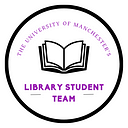Top Ten Tips: Researching Efficiently
By Matt from the Student Team
Learning how to research efficiently can really speed up your searching process allowing you to produce your best work and research stress-free. These 10 tips offer some great ideas about what you can do to find exactly what you need and how to do so more effectively.
If you would prefer to listen to the Top Ten Tips, check out our podcast below:
Top Tip 1
You will find what you need more quickly if you have a specific target in mind — so, make your key words as precise as possible.
It may sound obvious but it’s useful to establish exactly what you’re trying to find. This will allow you to narrow down your search to find the information that is relevant to you. The most effective way to do this is to identify what key words may appear in papers related to your research.
Top Tip 2
Start your search on a database you are familiar with. This will help you get the information you need quicker.
Starting off the search with something familiar will make you feel more accomplished and at ease. A successful beginning is key to having a good mindset throughout your entire search. If you know a particular database well, it makes sense to start there to get to grips with your research. However, to strengthen your findings you must broaden your horizon and step out of your database comfort zone eventually.
Top Tip 3
Being specific can save you a lot of time! A single word can cut down 96% search results which wouldn’t have helped you.
The amount of information available online can be overwhelming. Just one extra word can drastically reduce the amount of results making it all easier to process. When adding extra words to your search it can be useful to incorporate the functions offered by databases. For example searching for papers with every word or either of the terms you entered.
Top Tip 4
Don’t waste time scrolling through results which are too broad, aimed at the wrong level or inappropriate to your assignment. Go directly to the articles that look relevant!
Prioritise the articles that seem most relevant to your work as these will be the ones you end up including. You can determine this easily by reading abstracts or conclusions before taking on the entire paper. Once you know an article is relevant, your time reading will be well spent.
Top Tip 5
Cut down thousands of results to a manageable amount by setting date boundaries, document types or specific authors.
The relevance of the article is not the only factor used to narrow down your findings. The reliability of articles can be established by the author or date. For example, it is more constructive to include more recent findings as they are the most up to date. Additionally, the credibility of the author plays an important part in evaluating the literature. If you are unsure what findings to include you may find it useful to attend our workshop on ‘What makes a journal article credible’.
Top Tip 6
Learn how to use multiple databases, if you focus on just one then you might miss out on important information.
The type of information you’re looking for may be found on more than one database. You can expand your research by repeating a similar search in different databases. This can add to your total findings thereby strengthening your research. The entire list of databases available to you as a UoM student can be found here.
Top Tip 7
Before reading the full text, work out the reliability of a source by looking at the bibliography or abstract to make sure you’re not wasting time.
It will be frustrating if you read most of an article only to find it is not very reliable. Therefore it is important to establish this in the beginning. You could read the abstract to determine the relevance or take a look at the bibliography to examine the strength of their references.
Top Tip 8
Bias, age and agenda can all have an impact on the usefulness of a source. Make sure you critically evaluate the information you read.
An effective piece of work needs to come from an objective viewpoint. To do this you should ensure that you have a variety of sources which are not biased towards one opinion. Although you may want find a certain result, you cannot tailor your research to this otherwise your findings are meaningless. It is also essential to consider the age of the piece and its agenda. By critically evaluating each resource you can ascertain how objective it is.
Top Tip 9
Before you use a source in your assignment, ask yourself who, how, what, why, when and where to establish the reliability, objectivity and relevance of the evidence you found.
Asking all these questions will cover every base meaning your findings are completely appropriate for your research. Reliability, objectivity and relevance are the three key factors in determining whether to include a piece of work.
Top Tip 10
There is no point wasting your time and becoming demotivated because your search isn’t working. Try to change the search tool, try out different key words or seek advice from the Library.
Don’t allow yourself to get stressed if a search doesn’t return what you need. Think about how else you can redo the search such as by changing the terms entered or by using another database. If you try your hardest and still come up with nothing then this may be a gap in the literature which is worth pointing out!
